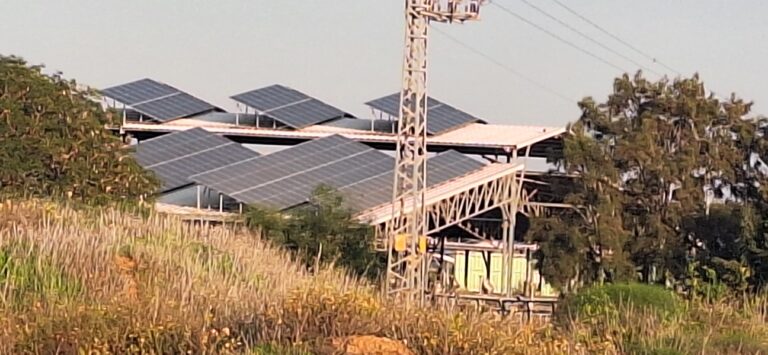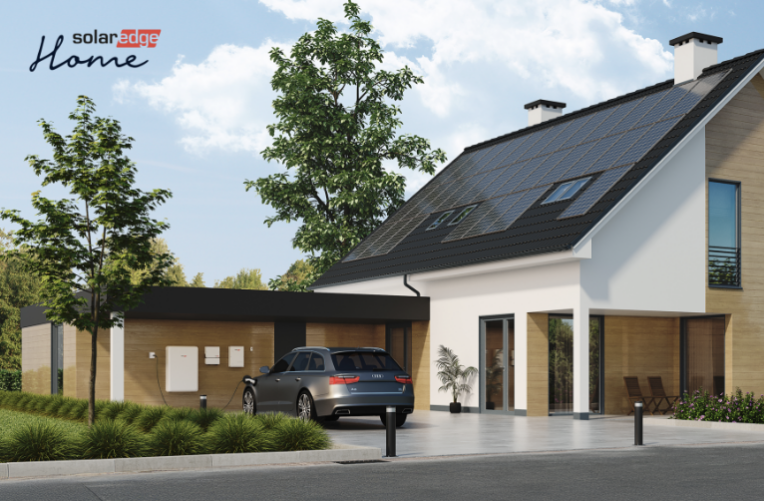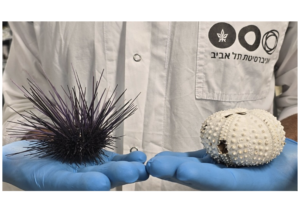EU Ambassadors visit Green Knesset (Israël)

Some 20 ambassadors of European Union countries visited the Israeli parliament to learn about Knesset Speaker Edelstein’s flagship “Green Knesset” project and to discuss ways to cooperate on environmental protection and sustainability.
Some 20 ambassadors of European Union countries visited the Israeli parliament on Wednesday to learn about Knesset Speaker Yuli-Yoel Edelstein’s flagship “Green Knesset” project and to discuss ways to cooperate on environmental protection and sustainability. The environmental project is being spearheaded by Knesset Director-General Ronen Plot.
“When we launched the Green Knesset project, it was nice to realize that on the issue of environment there is no coalition or opposition,” Speaker Edelstein told the ambassadors. “We realized that we have to put our money where our mouth is. The Knesset passes a lot of legislation on issues related to the environment, and we realized that by doing very simple things in the parliament building, such as saving paper, we can achieve a lot.”
Speaker Edelstein said the environmental project was also about promoting “trust in parliament,” noting that he was proud to receive the “Green Globe” award last year on behalf of the Knesset from the umbrella organization of environmental NGOs. “We realized that Green Knesset also offered an opportunity to cooperate with other parliaments, including those in the EU,” Edelstein continued. “From here we can take it to cooperation with neighboring countries,” he said, adding that such cooperation could help build trust.
In his remarks, Speaker Edelstein also stressed the importance of the educational message of Green Knesset. “The project is changing people’s perception of the Knesset. It shows that we do not just talk – we do,” he said, while noting that parliament also offers tours of the various Green Knesset stations in the parliament building. This tour is offered to people from kindergarten age and up. “This issue of sustainability is something that we have to deal with now,” Edelstein stressed.
EU Ambassador to Israel Lars Faaborg-Andersen said, “The European Union is deeply concerned about climate change and its impacts. It is a major threat to our common future, to shared prosperity, security and stability. Addressing climate change is not a luxury but a crucial element for growth, wellbeing and employment.”
“The Mediterranean region has a particular reason to be worried, with the arid nature and water scarcity,” he said. “Indeed, it has been identified a climate change hotspot by the Inter-governmental Panel on Climate Change (IPCC). The ever aggravating impacts represent substantial pressures on the national economies because of damages to the land, to the marine environment, sea level rise, and subsequent consequences to relevant economic sectors. Food security is a particular concern. The bottom line is that climate change affects us all – and we all have a part to play to fight it.”
Addressing the international climate talks “that are gathering pace as we get closer to the United Nations climate conference this December,” Ambassador Faaborg-Andersen said “We need this conference to deliver an ambitious, legally binding global climate agreement that will keep us on track to avoid dangerous climate change. Action is needed from all countries. In the run-up to Paris, countries must come forward with their plans on how they will contribute by cutting their emissions and responding to the risks linked to climate change. The European Union has committed to a target of cutting our emissions by at least 40% by 2030.”
The Ambassador declared that the EU was “committed to delivering on climate action, and on building a true effective partnership aimed at low emission and climate resilient development, bringing together the global knowledge and experience, and the combination of efforts of all. This is also the case in EU cooperation with the Mediterranean countries, including Israel, where we have established fruitful cooperation both bilaterally and within the framework of the Union for the Mediterranean.”
MK David Amsalem, Chairman of the Internal Affairs and Environment Committee, told the envoys that while the relations between Israel and the EU are “complex” and tend to focus on difficult and controversial issues, “we can work together on issues such as the environment.” He noted that the Knesset uses “green electricity” and that most water in Israel is reclaimed water. Israel, Amsalem added, is so advanced in the field of waste separation “that we have almost no waste.”
During the discussion, Gilles Pecassou, Deputy Head of Mission, Embassy of France, said, “we must act now” on the climate change issue in order to “keep it at a bearable level. If nothing is done, we will reach six degrees Celsius (of warming above preindustrial levels) by 2014. Our goal is to remain below two degrees.”
MK Dov Khenin, who is among those who are spearheading the Green Knesset project, also discussed the climate change. “We are facing a difficult, uphill challenge. To deal with this, we have to ‘get out of the box’ and make a concentrated effort to find new ways to get out of this difficult situation. Green Knesset allows me to be a part of this change.”
MK Benny Begin, a geologist, told the ambassadors that “something must be done to help humanity.” He said that despite the discovery of natural gas off the coast of Israel, the country “does not want its energy supply to hinge solely on two pipes from the Mediterranean.”
MK Tamar Zandberg said Israel must take part in COP 21. “I see it as part of our participation in the international community,” she said. “All countries must make a distinct commitment regarding the environment. We would like to see Israel taking steps which we can present at the summit (in Paris),” Zandberg stated.
Hungarian Ambassador to Israel Andor Nagy congratulated the Knesset on its environmental efforts. “You put Israel on the map of sustainability,” he said.
Italian Ambassador Francesco Maria Talo also lauded the “bipartisan” work the Knesset is carrying out. He said the upcoming Expo Milano conference is “tailor-made” for Israel, and mentioned that, in agreement with the Jewish National Fund, 120 trees will be planted to offset the ecological footprint of the event.
Oded Ben-Hur, the Knesset’s diplomatic advisor, said that while the Knesset is not authorized to sign peace treaties, “it can [promote] peace-building projects such as this.”
Following the discussion, the ambassadors toured the various Green Knesset stations in the parliament building, including the 4,650 sq.-ft. solar field which was recently installed on its roofs. While on the roof, Dr. Samuel Chayen, sustainability coordinator of the Green Knesset project, provided further explanations about the solar array and the project in general.
Later, the ambassadors were welcomed to the Knesset Plenum by Speaker Edelstein, who said “we are proud that the Knesset is the ‘greenest parliament in the world’. This is not merely a slogan; it is reality, which we changed here in the Knesset with a substantial investment, to the extent of a true revolution.”
Edelstein mentioned several environmental cooperation agreements the Knesset has recently signed with parliaments worldwide, and added: “We are glad that we succeeded in generating interest in these issues. This is another good reason to vehemently oppose the evil wind of the various boycotts. Instead of boycotting – let’s talk! Instead of trying to isolate and remain entrenched in hatred, let us [cooperate] on issues that are shared by all mankind – the environment, sustainability and renewable energy.”
The following European officials visited the Knesset Wednesday:
EU Delegation:
- Mr. Lars Faaborg-Andersen, Ambassador, Head of the Delegation of the European Union Delegation to the State of Israel
• Mr. Luigiandrea Pratolongo, First Counsellor, Head of the Trade and Economic Section
• Mrs. Alexandra Meir, Policy Officer, Science and Technology Section
EU Ambassadors (or Representatives):
- Dr. Franz Josef Kuglitsch, Ambassador of Austria
• Mr. Dimitar Mihaylov, Ambassador of Bulgaria
• Mr. Pjer Simunovic, Ambassador of Croatia
• Mr. Ivo Schwarz, Ambassador of the Czech Republic
• Mrs. Malle Talvet-Mustonen, Ambassador of Estonia
• Mrs. Leena-Kaisa Mikkola, Ambassador of Finland
• Mr. Gilles Pecassou, Deputy Head of Mission, Embassy of France
• Mr. Andor Nagy, Ambassador of Hungary
• Mr. Francesco Maria Talo, Ambassador of Italy
• Mr. Andris Vilcans, Ambassador of Latvia
• Mr. Ramunas Davidonis, Chargé d’affaires, Embassy of Lithuania
• Mr. Simon Pullicino, Ambassador of Malta
• Mr. Jacek Chodorowicz, Ambassador of Poland
• Mr. Gabriel Sopanda, Chargé d’affaires, Embassy of Romania
• Mrs. Alenka Suhadolnik, Ambassador of Slovenia
• Mrs. Alexandra Rydberg, Chargé d’affaires, Embassy of Sweden






